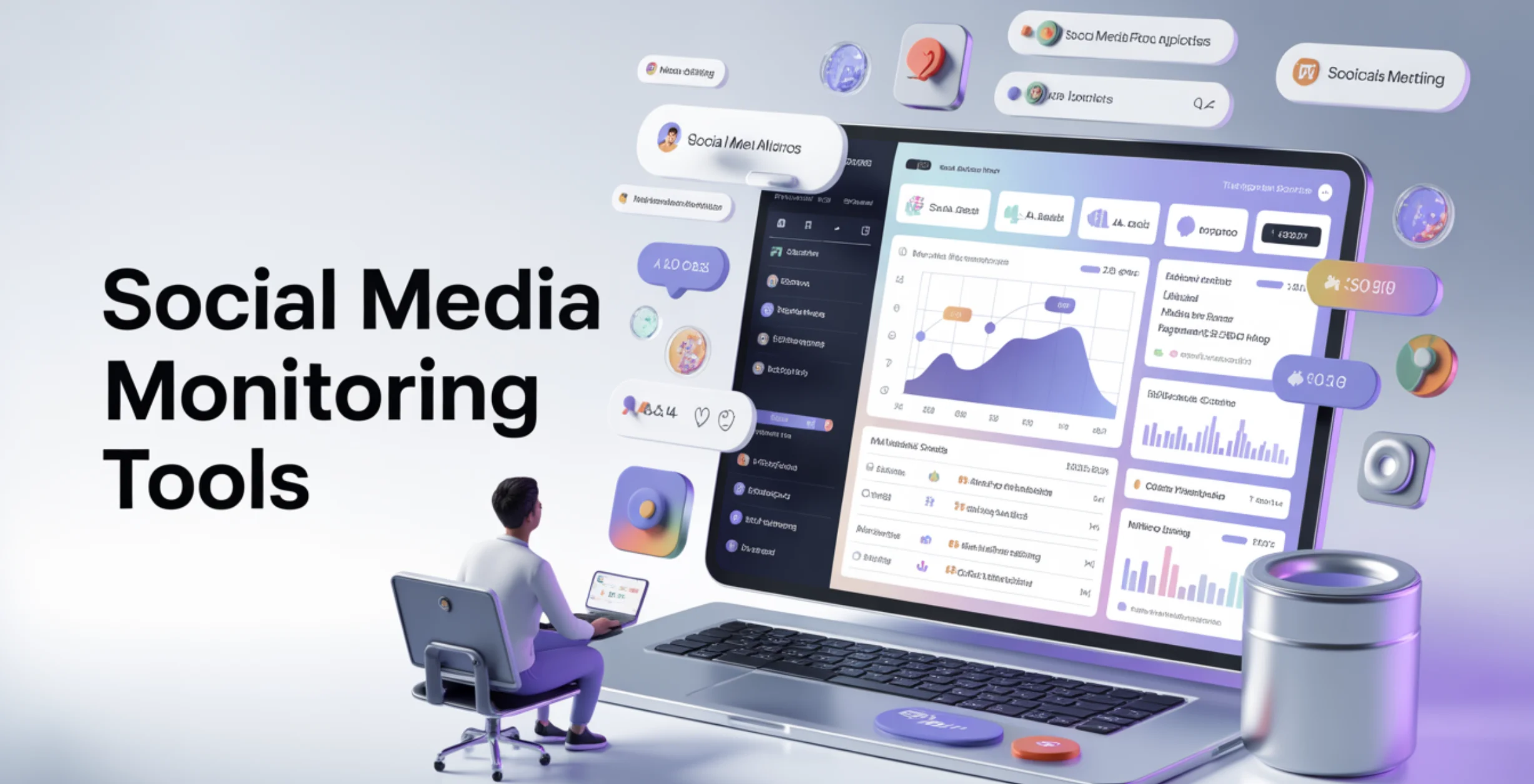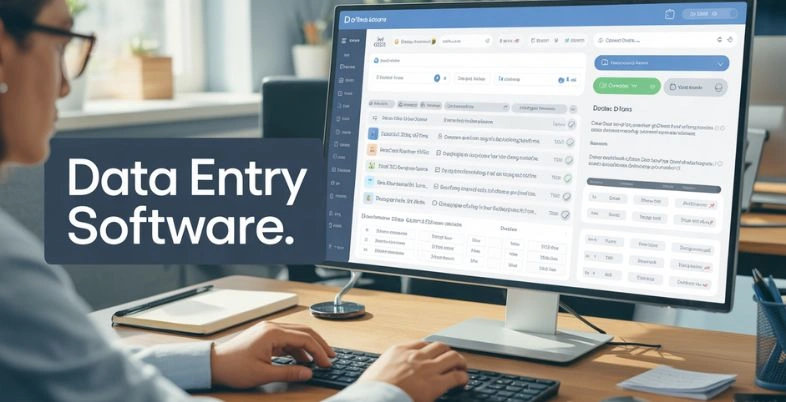One of our greatest assets is data. It can be disastrous to lose critical information regarding favourite family photos, sensitive work files or huge databases in the case of business. That is how cloud backup solutions occur. Modern and safe method of backing up your data to store it off-site so that it is not lost due to a physical or system crash, malicious cyberattacks, or accidental deletion is called cloud backup. As compared to the usual storage mechanism, cloud backups can be automated, scaled to as flexible as needed, and can be accessed through a client whose location is available through the internet.
With the increase in the number of people and entities switching operations to the internet, the need to have viable cloud backup tools has risen tremendously. Whether you are a startup or a multinational corporation, all of you are trying to find backup solutions that are safe, less expensive and easy to operate. The most effective cloud backup service providers of the present day not only preserve your data but also guarantee rapid retrieval, security and compatibility with other systems you operate.
It is a distinctive service that can be selected among many offers and it is difficult to make a choice. The article contains an investigation of the top cloud backup companies, including their functions, the amount of storage, the cost, the means of protection, and simplicity. Regardless of whether you are a civilian who wants to ensure that your digital memories are safe or a company that is concerned about protecting essential records, this article will assist you in making the right decision so that your data is always safe and available.
What Makes Cloud Backup a Smart Choice?
- Automated Backups: Leading cloud backup systems protect against human factors by automatically saving your files in pre-defined periods so they are not stored by using manual save.
- Data Security &Encryption: To safeguard important information, leading providers apply advanced encryption (AES 256-bit) and guarantee that data is safe both at the moment of its transmission and when it is stored at the server to prevent hackers and unauthorised access.
- Remote Access: Cloud backup facilities enable the user to access files anywhere, any time on any available online connected device, and this aspect effectively fits the need to work remotely and even travel.
- Disaster Recovery: Cloud backups are fast to recover in case of hardware breakdown, unwanted deletion, or hacking to limit downtime and loss of data.
- Scalability: The majority of services provide flexible storage plans that enable individuals or businesses to scale up or down depending on the changing storage requirements.
- Versioning Support: Most platforms maintain multiple versions of the files so that the file can be restored to an earlier version in case it was changed in an unwanted manner or gets corrupted.
- Cross-Platform Compatibility: The most useful cloud backup products cover Windows, macOS, Android, iOS, and Linux, which makes them useful on a broad range of devices and operating systems.
- Cost-Effective Storage: Whereas physical backups are more costly to use than cloud services, they can be less expensive overall since subscriptions to cloud services are priced depending on the needs of the user and how much they are prepared to invest
List of 10 Best Cloud Backup Tools
1. IDrive

IDrive is a very flexible and powerful cloud backup system that supports both cloud-based and local backups, which are most convenient for both individual and company consumers. IDrive, unlike some of their competitors, can back up multiple devices (PCs, Macs, iPhones, Androids, and even external drives) in the same account and help to keep your system clean. The platform has real-time versioning and syncing, and it can store 30 versions of any file.
It also has disk image backup and bare-metal restore. IDrive is characterised by a high security level providing AES 256-bit encryption and other alternatives are available (private key encryption). The web control panel is easy to access and easy to handle huge amounts of data. Despite the free service being stingy, the paid plans are not very expensive given the abundant features provided. Under IDrive, users obtain an all-inclusive, secure backup option that has a wide scope of control.
Key Features:
- Unlimited device backup
- Versioning and syncing (up to 30 versions)
- AES 256-bit encryption using private key capability
- Bare-metal recovery and disk-image backup
- Real-time and scheduled backup
Pros:
- Allows multiple gadgets to use through a single account
- Good security solutions
- Inexpensive plans including feature-packed plans
- 10 GB landing is Free
- Mobile backup was involved
Cons:
- The interface is a bit old-fashioned
- Appropriate speeds for uploading big files at a lower rate
- Unlimited storage available No
Best For:
- Consumers with multiple devices and users who want to have powerful security features.
2. Carbonite

Carbonite as a backup cloud service, is aimed at personal users and small organisations who would like backups to be automatic and set-it-and-forget-it. It provides unlimited storage in both its Basic and Pro plans and supports one computer, whereas the upgrades allow backing up of external drives besides the advanced features.
The software is non-obtrusive; it silently works in the background making backups of documents, emails, settings and so on. It also has remote file accessibility, versioning, and AES 128-bit security. Business plans are HIPAA compliant and with backups of servers. Though Carbonite is simple and efficient, it has average restoration rates and there is no support for mobile or Linux systems. Its high customer service and reputation notwithstanding, it is a reliable choice for non-technical users.
Key Features:
- Unlimited recovery of a single computer
- Access to remote files
- Revision history and file undelete
- AES 128-bit encryption
- Business plans that are HIPAA-compliant (business plans)
Pros:
- Easy installation, simplicity Easy to use
- Unlimited storage
- Accessibility of files remotely
- Good customer service
Cons:
- Only a single computer is allowed per plan
- Reduced speeds of restore Slower restore speeds
- No backup assistance by mobile
Best For:
- Small business owners and individuals who require simple and basic backup.
3. Acronis

Acronis Cyber Protect Home Office (previously True Image) is a single unified solution incorporating cloud protection, cybersecurity, and malware removal tools. It provides complete disk-image-based backup, file backup, and protects against malware. Acronis works with Windows, macOS, iOS, and Android, and it is possible to back up the whole system or particular files.
The hybrid backup approach allows both cloud and on-site backup as an additional backup. It is much more than a typical backup service with AES 256 encrypted, blockchain-based data authentication, and anti-ransomware instruments. The user interface may however be intimidating to a beginner and the software is more costly as compared to the simple backup tools. Acronis is a good choice among tech-savvy users or those who require full protection.
Key Features:
- Whole disk and file-level backups
- The hybrid local + cloud backup
- Delegations to combat malware and ransomware Antibiotics to prevent malware and ransomware
- AES 256-bit encryption
- Authentication of files in blockchain
Pros:
- Very safe and full-featured
- Speedy backups
- Multiplatform works
- Local and cloud backup choice
Cons:
- More expensive compared to the competitors
- The interface can be complicated for novices
- Restricted mobile characteristics in Narrower plans
Best For:
- Power users and professionals seeking backup security as well as.
4. pCloud

pCloud is a safe cloud storage and it has the option of automatic backup which makes it suitable to store and access files on different devices. There is no support for traditional full-system backups, but one can back up photos, videos, documents and other files on a computer, a smartphone or even a cloud-based service, such as Google Drive or Dropbox. pCloud has a focus on security, with client-side encryption available through its Crypto add-on.
It has an outstanding one-time lifetime buying option. It is excellent to be used on a personal level because it supports file versioning, file sharing, as well as media streaming. Nonetheless, it does not have the real features of an automated system backup. PCloud is excellent when it comes to storing files in the cloud, instead of backing up the whole device.
Key Features:
- Safe storage and sharing of files
- Version and backup of files
- Crypto add-on Client-side encryption
- Support of media streaming Media streaming support
- Lifetime plan choices
Pros:
- Lifetime prices offered
- Superb file sharing and media software
- Easy-to-use mobile/desktop applications
Cons:
- Not a complete backup solution (no images of the system)
- Encryption is an added streamer option
- There is no automatic backup of the whole device
Best For:
- Endpoint users who want to store files in an encrypted manner with optional backups.
5. Zoolz Cloud Backup

Zoolz has developed an all-in-one cloud backup service and it differs especially by utilising both cold and hot storage. Cold storage is economical and has slow file access whereas hot storage is immediate. It provides full system, file-level and hybrid backup types and AES 256-bit encryption.
Zoolz is suitable for home users and small businesses that need a cheap long-term backup of data that is not accessed often. It will also offer AI-based search, deduplication, and an external drive. Yet, there might be slow restore times out of cold storage and the interface is not quite new user user-friendly compared to other interfaces. Nevertheless, it is cost-effective, reliable, and affordable to use in long-term data archiving.
Key Features:
- Cold/hot cloud storage
- Backup file-level and system-wide backup
- AES 256-bit encryption
- Intelligent AI file search
- Exterior drive assistance of the backup Heroes firewall Heroes firewall other
Pros:
- Long-term storage is cost-effective
- Excellent encryption
- File organisation using AI
- External drive support
Cons:
- Large restore times (cold storage)
- The interface is a bit complex
- Poor phone compatibility
Best For:
- Storing gigantic data at low cost.
Also Read: Antivirus Software
6. Backblaze

Backblaze is one of the most common and affordable cloud backup services as a single device is offered unlimited storage at a fixed price. It is simple to use – install the client and it will back up user data without interruption (documents, photographs, videos, etc): (system files and files of applications are not backed up unless it is configured otherwise).
The recovery methods are versatile and can be downloaded or delivered on a USB flash drive or a hard drive. Backblaze uses AES 128-bit encryption and offers optional security by using a personal key. It is too cheap and is easily configured whereas it is more conservative on features such as local backup or multi-device roles.
Key Features:
- One computer unlimited backup
- Automatic and manual backups
- An optional 128-bit AES encryption of a personal key
- Restore: The web, flash drive or hard drive
- Mac OS and Windows native
Pros:
- Extremely simple to establish and run
- Real infinite capacity
- Accessible prices The flat-rate prices have been affordable.
- Healthy rescue solutions
Cons:
- Supports a single license only on a computer
- No backup disk- images
- Linux and mobile backup are not supported
Best For:
- People or freelancers who prefer an inexpensive, set-and-forget cloud backup that provides unlimited storage space.
7. SpiderOak One Backup

SpiderOak One Backup is a privacy-focused cloud backup program that has robust zero-knowledge encryption guidelines. It also supports data backup of multiple devices and provides entire versioning, deduplication and safe file sharing.
Its main outstanding aspect is complete end-to-end encryption, i.e., no one, including SpiderOak, can get access to your files. Its UI is not as modern, and the support is mobile-limited, but SpiderOak will be suitable for those users who care most about the security of their data and privacy, such as journalists and developers.
Key Features:
- Zero-knowledge encryption of going end-to-end
- Multi-device backup
- Secure ShareRooms File sharing
- Unlimited data (in the package selected)
- File versioning and dup deletion
Pros:
- Best privacy model Available
- Version control in detail
- Excellent with touchy or confidential information
- Its Windows version is available on Windows, macOS, and Linux
Cons:
- Dated interface
- Poor customer service
- None mobile-file backup
Best For:
- Users and professionals who handle sensitive or confidential information are security-conscious.
8. Dropbox Backup

Dropbox Backup, a subsidiary of the popular Dropbox cloud drive, was created with the sole purpose of giving you the ability to backup files or folders on your computer. and external storage on the cloud. It is also built into the ordinary Dropbox environment so that those people who use Dropbox will feel at home.
It will be more appropriate for rapid file-level backup as compared to doing complete system or disk images. Extra points are backup versioning, simple recovery, and quick synchronisation. The limitations however exist in the areas of flexibility and system-wide backup.
Key Features:
- File-level PC, Mac and external device backup
- Integration with the Seamless Dropbox environment
- Auto sync of folders such as Desktop, Downloads etc.
- File versioning and file recovery
- Rapid cloud synchronisation
Pros:
- Enterprise infrastructure trusted by Dropbox
- Convenience in usage Easy to use
- Perfect entry to fast access and restore of files
- External drive support
Cons:
- No complete-disk backup
- Large data plans are more expensive than others
- Not the best choice for businesses that require extensive backups
Best For:
- Dropbox users, as well as people seeking rapid and safe backups at the folder level.
9. CloudBerry Backup (MSP360)

MSP360 (previously CloudBerry) is a very solid backup tool, which is more oriented towards IT folks and managed services providers. It can backup to a wide range of cloud storage services (Backblaze B2, AWS, Google Cloud, Wasabi, etc), and full control is also provided over where and how the data is stored.
It supports image-level and file-level backup, hybrid local + cloud backup, compression and 256-bit encryption. MSP360 is full of high-end tools but can be cumbersome to non-technical users.
Key Features:
- Use cases Multiple cloud destinations
- Image and file backup
- Hybrid backupcare
- Compression, encryption and scheduling
- Works with Windows, macOS and Linux
Pros:
- If money or time were no object, it would be very adaptive and adaptable
- Top-of-the-range encryption as well as compression
- Local and Multi-cloud storage support
- Great to use by IT admins and MSPs
Cons:
- The interface is more complicated
- Needs commerce with a single cloud storage service provider
- There is a risk of having cost and much depends on the cloud provider’s charges
Best For:
- Business organisations and professional users that require full control and cross-cloud protection policies.
10. Google Workspace (Drive to Backup)

Google Drive is built into Google Workspace (previously G Suite) to aid in the storage of personal and commercial records. Although it does not provide a conventional backup service, Google Workspace enables you to back up folder(s) on your computer automatically to the cloud by using Drive for Desktop.
Its integration with Gmail is seamless as it can integrate with Docs and other Google apps which makes it excellent among the existing businesses that are using Google. The Backup and Sync feature allows for preserving old versions of the files and simple sharing of files.
Key Features:
- Automatic real-time backup to choose folders
- Versioning and sharing of files
- Close connection with Google Workspace applications
- This gives 2FA secure cloud storage
- It can be found on any platform
Pros:
- Common and practice-friendly
- Simple actions of collaboration and sharing
- Both work and personal application Article Attached Article Title Attached Article Subtitle Attached Article Title Raw Article Title RAW ARTICLE TITLE
- Free-level security with infrastructure that is Google-level secure
Cons:
- No systemwide backup
- Constrained within a limit of Google Drive storage unless the storage is upgraded
- It is not customised towards complete disaster recovery
Best For:
- Customers and companies operating under Google Workspace need a cloud backup and file sharing of files.
Conclusion
In an increasingly digitalised marketplace, cloud backup solutions are not an extra feature anymore, it is a must. You are a freelancer who has some critical files, a family with valuable memories, or a large company that has a massive amount of information stored, The proper cloud backup software makes your files safe, accessible, and recoverable.
There are cheap and basic solutions, such as Backblaze, secure solutions, such as SpiderOak One and solutions with extended features, such as Acronis. You can make a choice considering your security preferences, the compatibility of the device, budget, and the number of documents to be secured against accidents, cyber hazards and hardware faults.
FAQs
1. What is the primary advantage of cloud backup?
It stores your data in an off-site location and can easily restore it in case of accidental data loss or damage.
2. Is it possible to back up several devices using one account?
Yes, such tools as IDrive and SpiderOak One offer multi-device support over a single plan.
3. Can cloud backup be hacked?
The biggest services enjoy a high security level providing AES encryption and the use of private keys.
4. Is an external hard drive better than cloud backup?
Yes, since it provides remote access, automatic backups and non-vulnerability damage.
5. Do cloud backups involve system images of the whole system?
There are complete system and disk-image backup options available in some of the more sophisticated tools such as Acronis and MSP360.






